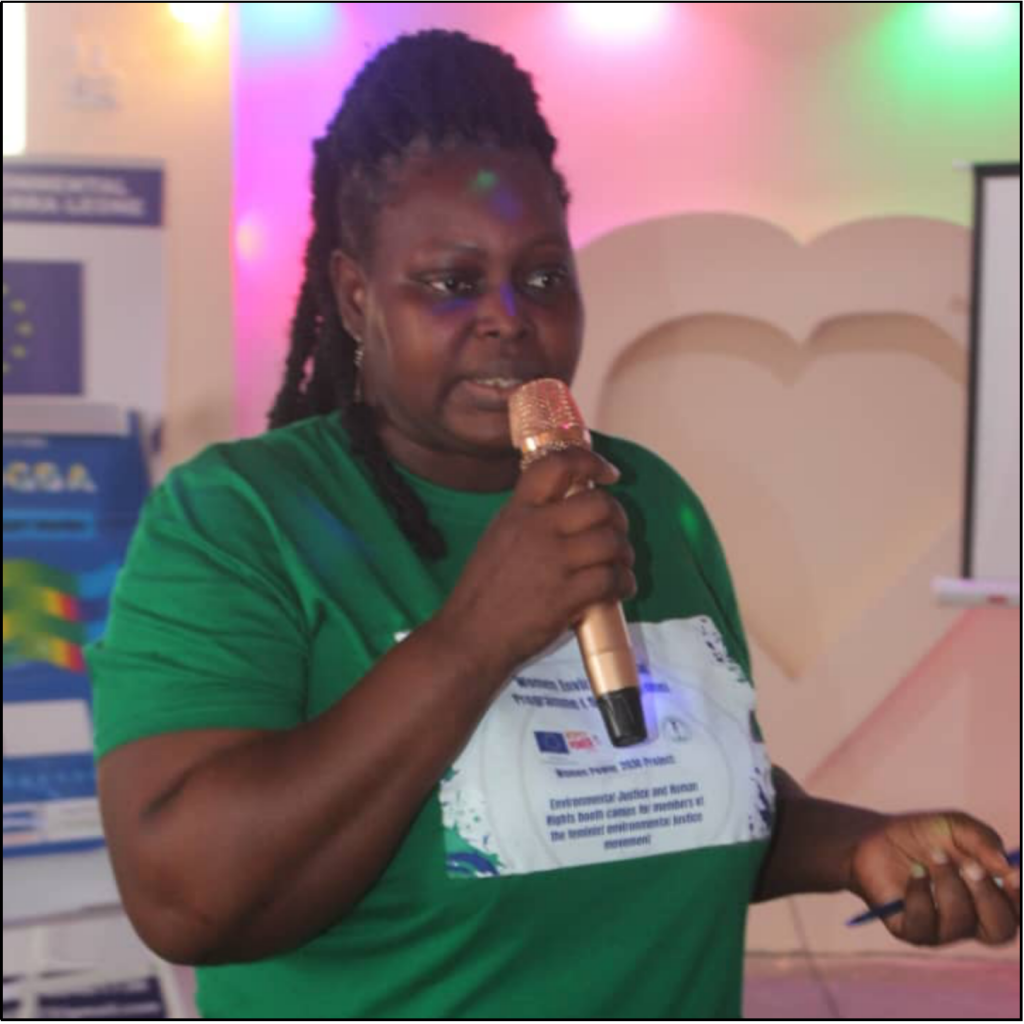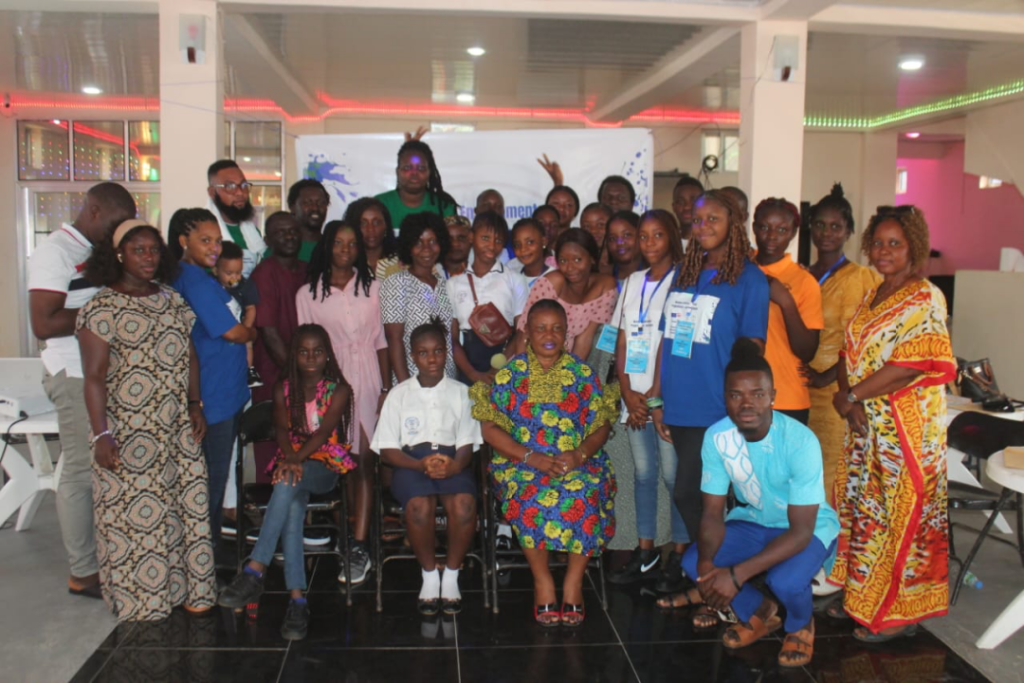In a significant stride towards achieving the Women Power 2030 Sustainable Development Goals (SDGs), the Women Environmental Programme (WEP), with support from the European Union and Women Engage for a Common Future (WECF), recently organized a transformative two-day workshop focused on Environmental Justice and Human Rights.
Held on December 19th and 20th, 2024, at the Two Brothers Auditorium on Syke Street in Freetown, Sierra Leone, the event attracted a diverse group of young feminist environmental activists and organizations from the western region and beyond. WEP, a non-governmental, non-profit, and non-political organization headquartered in Abuja, Nigeria, operates with the mission to transform the lives of women and youth globally through four core program areas: Environment, Climate Change, Women and Girls’ Issues, and Peace and Security.
The workshop was part of the broader “WomenPower2030” initiative, a Financial Framework Partnership Agreement (FFPA) established between the European Union and a consortium of five feminist organizations led by WECF.
This initiative aims to bolster the capacities of women’s and feminist civil society networks to combat inequalities, advance gender-equal sustainable development, and influence policies at both regional and global levels. During her opening remarks, Madam Stalina Princess H. Voegli, the Chief Executive Officer of WEP Sierra Leone, outlined the workshop’s primary objectives: to equip participants with practical knowledge regarding environmental issues, encourage innovative ideas, and foster collaboration among participants.

She emphasized the importance of creating a platform for knowledge exchange, hands-on learning, and professional development. Madam Stalina urged attendees to actively participate in the sessions, highlighting that the skills they would acquire would be instrumental in their advocacy efforts and economic empowerment, particularly in the fight against harmful environmental practices. The workshop featured several modules led by knowledgeable facilitators, including John Abu-Kpawoh, who addressed “Environmental Issues Impacting Women in Sierra Leone through the Lens of the Sustainable Development Goals (SDGs).” His session was divided into three modules: Understanding Environmental Justice and Human Rights, Environmental Justice and HR Issues Hindering Sustainable Development, and Advocacy for Environmental Justice. He called upon female activists and organizations to unite in tackling the pressing environmental challenges that disproportionately affect women in Sierra Leone, particularly in the context of climate change, deforestation, water scarcity, and environmental degradation. Abu-Kpawoh emphasized the intertwined nature of these issues with poverty, health, and social inequality, asserting that they are critical areas of intervention under the Sustainable Development Goals. He highlighted the importance of SDG 5: Gender Equality, explaining how environmental issues exacerbate gender disparities in Sierra Leone. Women often bear the responsibility of fetching water, farming, and providing for their families, yet they face significant barriers to accessing resources and participating in decision-making processes.
Another facilitator, Mustapha Ansumana, continued the training with modules on Behavioral Change Communication and Environmental Governance. He stressed the critical role of women’s voices in advocating for environmental justice and the protection of women’s rights. Ansumana inspired participants to leverage their courage and determination to influence policies, educate communities, and inspire movements that prioritize women’s safety and dignity in environmental contexts. The enthusiasm among participants was palpable, with many expressing gratitude for the knowledge and skills gained during the workshop. Musa Brima noted that the training opened his eyes to the vast potential of advocacy in effecting meaningful change in addressing climate change.
Ramatu Conteh echoed this sentiment, calling for more training opportunities to empower activists in their environmental advocacy efforts. The event culminated in the awarding of certificates to all participants, marking a significant milestone in their journey as environmental advocates. The Women Environmental Programme reaffirmed its commitment to empowering women and youth, fostering gender equality, and promoting sustainable development through similar initiatives in the future. This workshop not only equipped participants with valuable skills but also reinforced the importance of collective action in addressing environmental challenges and advocating for women’s rights in Sierra Leone and beyond.
